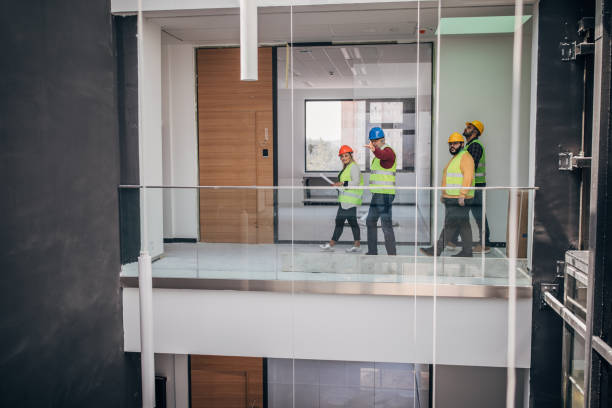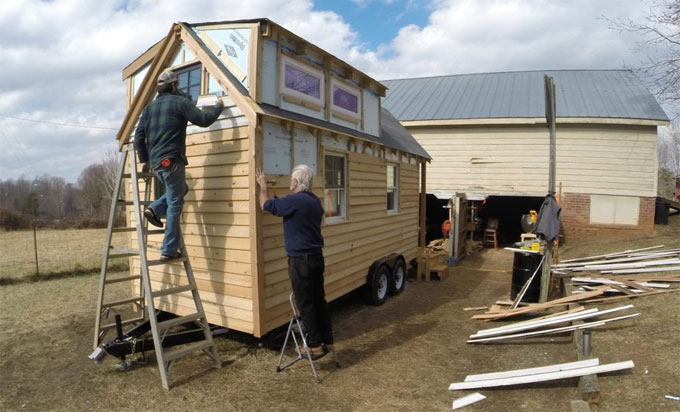Choosing the right general contractor for a large-scale project is a pivotal decision that can significantly impact your construction endeavor’s success, timeline, and budget. With various factors to consider, from experience to reputation and communication style, selecting the best contractor is about finding a balance between your needs and your capabilities. Working with the right general contractor can streamline your project, ensuring quality work, efficient scheduling, and a smooth process from start to finish.
Understanding the Role of a General Contractor
A general contractor plays a central role in managing all aspects of your construction project, coordinating between different trades, obtaining necessary permits, sourcing materials, and overseeing the work on-site. They act as the project’s backbone, ensuring that each phase is completed on schedule and that any unforeseen issues are handled professionally. When working on larger projects, a skilled general contractor is invaluable in keeping everything aligned, so you don’t need to micromanage each detail.
Beyond overseeing the project, a great contractor ensures compliance with local regulations and industry standards. They take care of quality control, manage costs, and keep your project on track to prevent costly delays. However, not every general contractor will have the experience or resources required for larger projects, which is why finding the right one is crucial.
Evaluating Experience and Expertise
The experience of a general contractor is a key factor, especially when it comes to large projects. Look for contractors with a proven track record in similar-sized projects. They should be able to showcase previous works that align with the scale and complexity of your project. Seasoned contractors bring not only knowledge but also solutions for challenges that may arise, ensuring fewer setbacks.
Specialization also matters. A contractor with experience in large-scale residential builds may not be suited for commercial projects and vice versa. During the selection process, ask for portfolios and references, and if possible, visit completed projects to see their quality firsthand. This will help you assess whether their expertise aligns with your vision.
Check for Licensing, Insurance, and Certifications
For large projects, ensuring that your general contractor is licensed, insured, and certified is non-negotiable. Licensed contractors have met regional standards and regulations, which often indicate a high level of professionalism and reliability. Insurance, on the other hand, protects you as the property owner from liabilities. Without proper insurance coverage, you could be financially responsible for accidents or damages occurring on-site.
Certifications from recognized industry organizations can also be a positive sign. These certifications demonstrate that the contractor is committed to upholding industry standards and is knowledgeable about the latest building codes and safety practices. Working with a certified professional provides peace of mind, knowing that they prioritize both quality and safety.
Reputation and References Matter
When narrowing down potential home general contractors Ontario has to offer, reputation is an essential factor to consider. Reputable contractors should have a history of satisfied clients and positive feedback. Seek recommendations from friends, family, or colleagues who have completed similar projects. Online reviews and testimonials can also provide insight into how a contractor works and whether they are trustworthy.
While reviews can be helpful, speaking directly to former clients is invaluable. Ask past clients about their experience with the contractor’s communication style, timeliness, and problem-solving approach. A good contractor should be transparent, approachable, and responsive throughout the project. Contractors with a solid reputation often prioritize clear communication and accountability, helping to foster trust and reduce misunderstandings.
Reviewing Project Estimates and Contracts
Before hiring, gather estimates from at least three general contractors. A detailed estimate gives insight into the project’s potential costs, from materials to labor. Remember, the lowest bid isn’t always the best choice. A low estimate could indicate cutting corners, lack of experience, or omitting necessary steps to complete the project correctly. Instead, choose a contractor whose estimate reflects a balance of quality, timeline, and value.
Contracts are essential for large projects, protecting both you and the contractor. Ensure the contract is comprehensive, covering timelines, payment schedules, and any specifics related to your project. This documentation ensures that all expectations are set from the beginning, reducing the likelihood of surprises or hidden costs down the line.
Communication and Compatibility
Effective communication is fundamental when dealing with complex projects that involve numerous stakeholders. Your general contractor should be a good communicator, keeping you informed at every step. Contractors who are transparent and open to discussing project details can prevent potential issues and misunderstandings. A compatible communication style helps ensure that your ideas and concerns are understood and addressed promptly.
Consider a contractor who is responsive and actively listens to your input. Compatibility in communication styles makes collaboration more productive and can reduce stress during the process. A contractor who respects your vision while providing expert guidance is often an ideal choice, as they will help bring your project to life within the specified parameters.
Project Timeline and Resources
A clear and realistic timeline is essential for the successful completion of any large project. An experienced general contractor will provide a detailed project schedule, outlining when each phase will be completed. Ask potential contractors about their strategies for managing timelines and handling potential delays. Inquire if they have the necessary resources, like a dedicated team or network of subcontractors, to complete the project within your timeframe.
Resource availability is a critical component that affects timelines. A contractor with well-established relationships with subcontractors and suppliers can often secure better rates and faster service. This access to resources makes a significant difference in keeping a large project on schedule and avoiding costly delays.
Monitoring Progress and Quality Control
Once your project is underway, quality control becomes a top priority. Reliable contractors will have measures in place to monitor progress and maintain quality throughout the project. Ask about their approach to supervision, inspections, and adjustments, if necessary. A good general contractor will conduct regular site visits, provide updates, and address any concerns promptly, ensuring that the work meets agreed-upon standards.
Keeping communication lines open during the project enables you to stay informed about progress, any potential issues, and necessary adjustments. Contractors who prioritize quality control foster trust and deliver work that aligns with your expectations.
Final Thoughts
Selecting the right general contractor for a large project requires thorough research and a thoughtful approach. By focusing on experience, reputation, resources, and communication skills, you can find a contractor who will bring your project to life with professionalism and efficiency. Remember, the right contractor will act as a reliable partner, guiding your project from concept to completion with care and expertise. Taking the time to choose wisely will ensure a smoother project experience and a high-quality end result.















